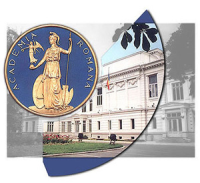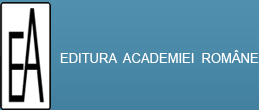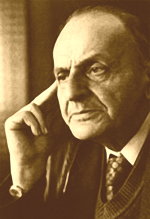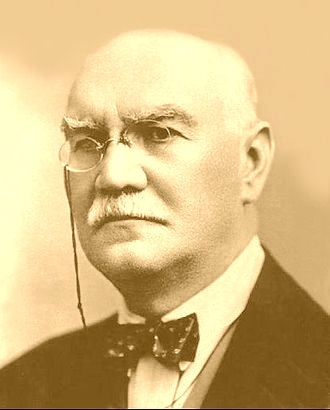Main Menu
DEPARTAMENTE
REVISTE
PUBLICAŢII PERIODICE
LEGĂTURI
CONFERINȚE
 Simpozionul Național Constantin Noica, Ediția a XVI-a „Povestiri despre om…” (26-29 septembrie 2024)
Simpozionul Național Constantin Noica, Ediția a XVI-a „Povestiri despre om…” (26-29 septembrie 2024)SIMPOZIONUL NAŢIONAL
SIMPOZIONUL NAŢIONAL
Welcome
Probleme de logică, vol. XXVI, 2023
| PROBLEME DE LOGICĂ |
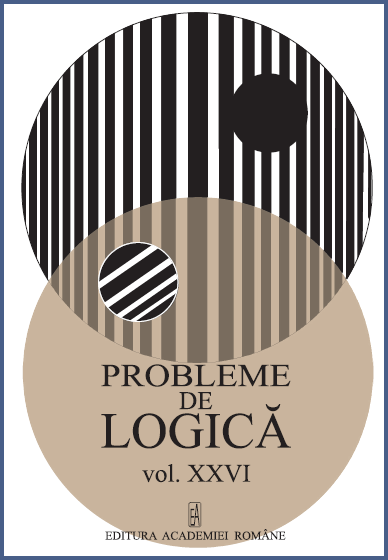 PROBLEME DE LOGICĂ, vol. XXVI PROBLEME DE LOGICĂ, vol. XXVICoordonatori: Acad. Mircea Dumitru, Marius Dobre, Viorel Vizureanu, Ștefan-Dominic Georgescu Editura Academiei Române, Bucureşti, 2023 ISSN 3008-2870 ISSN-L 1454- 2366 C U P R I N S A FREE LOGIC FOR FICTIONALISM MIRCEA DUMITRU Faculty of Philosophy, University of Bucharest Romanian Academy, Institute of Philosophy and Psychology Abstract: In Reference without Referents, Mark Sainsbury aims to provide an account of reference that honours the common-sense view that sentences containing empty names like “Vulcan” and “Santa Claus” are entirely intelligible, and that many such sentences – “Vulcan doesn't exist”, “Many children believe that Santa Claus will give them presents at Christmas”, etc. – are literally true. Sainsbury’s account endorses the Davidsonian program in the theory of meaning, and combines this with a commitment to Negative Free Logic, which holds that all simple sentences containing empty names are false. In this paper, I pose a number of problems for this account. In particular, I question the ability of Negative Free Logic to make appropriate sense of the truth of familiar sentences containing empty names, including negative existential claims like “Vulcan doesn’t exist”.  [Probleme de logică, vol. XXVI, Editura Academiei Române, Bucureşti, 2023, pp. 7-22] [Probleme de logică, vol. XXVI, Editura Academiei Române, Bucureşti, 2023, pp. 7-22] |
| OPERAȚII ȘI RELAȚII IONEL NARIȚA Universitatea de Vest din Timișoara OPERATIONS AND RELATIONS Abstract: The operations concern the semiotic parameters of expressions. The operations upon expressions are real or virtual. The real operations modify the values of semiotic parameters, while, through the virtual operations, we only suppose their change. The virtual operations, like quantifiers and predicates, generate propositions through which we suppose the presence of certain relations between expressions. Propositions, at their turn, are affected by peculiar real and virtual operations. The confusion between these types of operations leads to paradoxes, like the material implication paradoxes. Such paradoxes can be avoided keeping into account the distinction between operations and relations, namely, between composed propositions and propositions about propositions. Keywords: operations, relations, material implication paradox, extension, intension.  [Probleme de logică, vol. XXVI, Editura Academiei Române, Bucureşti, 2023, pp. 23-36] [Probleme de logică, vol. XXVI, Editura Academiei Române, Bucureşti, 2023, pp. 23-36] |
| PROBLEME ALE MATEMATICII ÎN „PROGRAMUL TIERGARTEN” AL LUI BERTRAND RUSSELL CONSTANTIN STOENESCU Facultatea de Filosofie, Universitatea din București Abstract. The name “Tiergarten Programme” was given to Russell’s early philosophical project by Nicholas Griffin (1988) because it was conceived during a walk through the Tiergarten in Berlin. Russell’s plan was to develop a comprehensively Hegelian dialectic of the sciences, from mathemathics to physiology, using the tools of dialectical logic and the metaphysical categories of the Absolute Spirit. Russell wrote a lot of notes about the new developments in Mathemathics and Physics and he tried to put them in a neo-hegelian framework. The only completed work the Essay on the Foundations of Geometry (1897), which could be understood as an attempt to offer a new version of Kantian transcendentalism. My goal in this paper is to propose a reconstruction of these contributions and to point out their philosophical significance both in the context in which they were elaborated and in relation to Russell’s philosophical development. Keywords: Bertrand Russell, “Tiergarten Programme”, foundations of mathematics, Hegelian dialectic, foundations of geometry, Kantian transcendentalism.  [Probleme de logică, vol. XXVI, Editura Academiei Române, Bucureşti, 2023, pp. 37-48] [Probleme de logică, vol. XXVI, Editura Academiei Române, Bucureşti, 2023, pp. 37-48] |
| MATEMATISM SAU LOGICISM? KANT ȘI FREGE IOAN BIRIȘ Universitatea de Vest din Timișoara MATHEMATISM OR LOGICISM? KANT AND FREGE Abstract. The present study tries to answer some questions considered essential for clarifying the relations between Kant’s and Frege’s conceptions of logic. Do the two great thinkers understand logic in the same sense? Why must Kant’s intuitionism be rejected? Does Frege’s logicism imply the rejection of Kant’s mathematism? Was Frege’s Logicism really a Failure? Keywords: logic; mathematism; logicism.  [Probleme de logică, vol. XXVI, Editura Academiei Române, Bucureşti, 2023, pp. 49-63] [Probleme de logică, vol. XXVI, Editura Academiei Române, Bucureşti, 2023, pp. 49-63] |
| ARISTOTEL ȘI GENEZA LOGICII LUI HERMES FLOREA LUCACI Universitatea „Aurel Vlaicu”, Arad Abstract. The problem I have in mind is found through presuppositions, motivations and answers in the substance of the questions: 1. How is it possible that the interpretation of the third syllogistic figure generates the idea of another logical structure? and 2. Can the hermeneutic exercise be associated with logical thinking? Intuitively we notice that the substratum of the interrogations implies a special relationship with the origins of philosophy. It is about that relationship that determines how Noica thinks about the elements of reasoning in relation to how Aristotle conceived syllogism and hermeneutics. Keywords: Logic, hermeneutics, syllogism, interpretation, understanding.  [Probleme de logică, vol. XXVI, Editura Academiei Române, Bucureşti, 2023, pp. 65-78] [Probleme de logică, vol. XXVI, Editura Academiei Române, Bucureşti, 2023, pp. 65-78] |
| JOHN STUART MILL’S FAILED THOUGHT EXPERIMENT CLAUDIU BACIU Institutul de Filosofie și Psihologie „Constantin Rădulescu-Motru” al Academiei Române Abstract: Mill’s utilitarian ethics is based on two assumptions: first, the Epicurean view that man is constantly in search of happiness; second, a thought experiment in which all human beings would gather together and share their life experiences. As a result of such sharing, they could understand that a significant majority of them prefer certain experiences that, as a consequence, will be seen as a ground for future universal human values. My presentation challenges the idea that universal values can emerge statistically through a consensus of individuals who lack any previous education (i.e., a system of beliefs that shape ‘a priori’ their experiences) and who thus can live wholly isolated from existing values. Keywords: Mill, Kant, Thought Experiment, Contradiction, Competent Judges, Highest Good.  [Probleme de logică, vol. XXVI, Editura Academiei Române, Bucureşti, 2023, pp. 79-85] [Probleme de logică, vol. XXVI, Editura Academiei Române, Bucureşti, 2023, pp. 79-85] |
| CÂTEVA OBSERVAȚII PRIVIND PROBLEMA POST-ADEVĂRULUI SERGIU BĂLAN Institutul de Filosofie și Psihologie „Constantin Rădulescu-Motru” al Academiei Române Academia de Studii Economice din București A FEW THOUGHTS CONCERNING POST-TRUTH Abstract. In this paper, I have reviewed some of the most interesting ideas and arguments concerning what has been called the ‘post-truth condition’. I set out to find answers to two questions. First, I have tried to understand whether we are dealing with a new phenomenon, specific for the contemporary world, or, on the contrary, we are facing an older human tendency, which manifests itself today in a new and more aggressive form. Secondly, I have tried to provide an answer to the question of whether or not post-truth is a phenomenon necessary connected to human nature itself, that is, whether man is, as some scholars have claimed, a ‘post-truth species’. Keywords: post-truth, storytelling, fiction, human nature, post-modernism.  [Probleme de logică, vol. XXVI, Editura Academiei Române, Bucureşti, 2023, pp. 87-102] [Probleme de logică, vol. XXVI, Editura Academiei Române, Bucureşti, 2023, pp. 87-102] |
| RECONSTRUCŢIA LOGICII CLASICE LA ALEXANDRU SURDU (III). TEORIA NOŢIUNII (II) ŞERBAN N. NICOLAU Institutul de Filosofie și Psihologie „Constantin Rădulescu-Motru” al Academiei Române ALEXANDRU SURDU’S RECONSTRUCTION OF CLASSICAL LOGIC (I). THE THEORY OF NOTION (II) Abstract. The paper goes on with the presentation of Alexandru Surdu’s reconstruction of the theory of notion from classical logic by means of analyzing the relation between notion and word and showing the double subsistence of notion, its double partn the conventional character terms, and the relation among words and notion as definition and, on the other hand, by exposing notion as mediation between word and object through the three hypostases of the word – uttering, denomination, and name. Keywords: Subsistence, Constitutive, Communicative, Conventional, Uttering, Denomination, Name.  [Probleme de logică, vol. XXVI, Editura Academiei Române, Bucureşti, 2023, pp. 103-119] [Probleme de logică, vol. XXVI, Editura Academiei Române, Bucureşti, 2023, pp. 103-119] |
| EXPANSIUNEA LOGICĂ MOMENTUL LOGIC ORIGINAR AL GÂNDIRII (VI) CEZAR ROȘU Abstract: In order to explain the complexity of the real, logical reflection cannot let itself be stuck into the rigidity of formulated thinking (of formal logic, of the taken for granted universal) which may lead only to exactness, but not to truth. The first truth condition is necessity (which will indeed offer the general). With its first act, the opening towards the general, logical reflection reached, by means of the category of unity, a first configuration of the general. But to really define it, thought will have to deepen the ideea of necessity, passing through all the steps (categories) bred within the logical couple, and at the end, by means of the categories of relation, it obtains, according to Constantin Noica, suitable types of necessity. Keywords: Neccesity as Relation, Necessary Relation, Causal Sequence, Substantial Inherence, Functional Dependence, Community, System.  [Probleme de logică, vol. XXVI, Editura Academiei Române, Bucureşti, 2023, pp. 121-128] [Probleme de logică, vol. XXVI, Editura Academiei Române, Bucureşti, 2023, pp. 121-128] |
| INDISPENSABILITY AND THE EMPIRICAL CONTENT OF MATHEMATICAL THEORIES ANDREI IONUȚ MĂRĂȘOIU Facultatea de Filosofie, Universitatea din București Abstract. I highlight how questions of indispensability and questions of the empirical content of mathematical theories, although different, can fruitfully inform one another. After elaborating on what it might mean to say that mathematical theories enjoy empirical content, in terms of the modal status of mathematical truths, the confirmation of applied mathematics, and the explanatoriness of applied mathematics, I argue that modal or confirmational terms are not appropriate for establishing whether mathematical theories enjoy empirical content. Where explanation is concerned, I suggest there is a variety of different kinds of mathematical explanation, and so if empirical content of mathematical theories is conceived of in terms of explanation, then there is a variety of ways in which mathematical theories may come to possess empirical content. Consequently, we have to ask which portions of mathematics are indispensable in the best current explanation of which empirical phenomena. In doing so, which theory of explanation is espoused plays a major role in the assessment of whether mathematics is explanatory or merely representational or descriptive. Keywords: indispesability arguments, mathematical theories, empirical content, explanatory power.  [Probleme de logică, vol. XXVI, Editura Academiei Române, Bucureşti, 2023, pp. 129-137] [Probleme de logică, vol. XXVI, Editura Academiei Române, Bucureşti, 2023, pp. 129-137] |
| NON-CATEGORICITATEA LOGICII (II). SISTEME LOGICE CU CONCLUZII MULTIPLE ȘI BILATERALISTE CONSTANTIN C. BRÎNCUȘ Institutul de Filosofie și Psihologie „Constantin Rădulescu-Motru” al Academiei Române THE NON-CATEGORICITY OF LOGIC (II). MULTIPLE-CONCLUSIONS AND BILATERALIST LOGICS Abstract. The categoricity problem for a system of logic reveals an asymmetry between the model-theoretic and the proof-theoretic resources of that logic. In particular, it reveals prima facie that the proof-theoretic instruments are insufficient for matching the envisaged model-theory, when the latter is already available. Among the proposed solutions for solving this problem, some make use of new proof-theoretic instruments, some others introduce new model-theoretic constrains on the proof-systems, while others try to use instruments from both sides. On the proof-theoretical side, two main approaches for solving the categoricity problem for propositional classical logic consist in the enforcement of the formal systems of this logic by introducing rules of inference of a new kind. A multiple-conclusions logic allows rules of inference with more than one conclusion, while a bilateralist system contains rules of inference formulated in terms of assertion and rejection. Both these approaches reveal interesting formal features of logical reasoning. This paper analyses some of the advantages and limitations of these two approaches as solutions for a full formalization of logic, i.e., for a categorical formalization. Keywords: categoricity, non-standard evaluations, inferentialism, multiple-conclusions, bilateralism.  [Probleme de logică, vol. XXVI, Editura Academiei Române, Bucureşti, 2023, pp. 139-162] [Probleme de logică, vol. XXVI, Editura Academiei Române, Bucureşti, 2023, pp. 139-162] |
| IMPERATIVUL CATEGORIC ȘI LOGICA DEONTICĂ GABRIEL ILIESCU Universitatea „Spiru Haret”, București CATEGORICAL IMPERATIVE AND DEONTIC LOGIC Abstract. The central concern of this article is kantian categorical Imperative viewed from Georg Henrik von Wright’s Deontic Logic. We have a general hypothesis. According to it, categorical imperative implicitly carries a hierarchy of languages. These not being known in Kant’s time. A second, more accurative hypothesis, is this categorical imperative is an obligation. Which means that it is subordinate to the calculation of Deontic Logic and, at least, to the Logic of Action. Thus, if the imperative meant the obligation to do, then it has at least one equivalent, that is forbiden not to do, and at least one consequence, the permission to do. Action operators apply to events. Thus, an analyses of the imperative becomes posible with tools that did not exist at the time of the Konigsberg Philosopher. Keywords: categorical imperative, Deontic Logic, The Logic Action, event, obligation forbiden, permissions.  [Probleme de logică, vol. XXVI, Editura Academiei Române, Bucureşti, 2023, pp. 163-179] [Probleme de logică, vol. XXVI, Editura Academiei Române, Bucureşti, 2023, pp. 163-179] |
| CONCEPTE CU ROL DE CONECTORI LOGICI SPECIFICI FILOSOFIEI DIALECTICO-SPECULATIVE HEGELIENE ȘTEFAN-DOMINIC GEORGESCU Institutul de Filosofie și Psihologie „Constantin Rădulescu-Motru” al Academiei Române Academia de Studii Economice din București CONCEPTS OPERATING AS LOGICAL CONNECTORS IN HEGEL’S DIALECTICAL-SPECULATIVE PHILOSOPHY Abstract. The paper contains a primary insight into the possibility of determining the logical connectors that are specific to dialectical-speculative logic starting from the connectors of the other two types of logic. There seems to be a similarity among these connectors or sincategorema and this could be helpful for a formalization of dialecticalspeculative logic. Keywords: logical connector, speculative, logical form, dialectic, Aufhebung.  [Probleme de logică, vol. XXVI, Editura Academiei Române, Bucureşti, 2023, pp. 181-194] [Probleme de logică, vol. XXVI, Editura Academiei Române, Bucureşti, 2023, pp. 181-194] |
| TEORIA DIALOGULUI ÎN LOGICA INFORMALĂ MARIUS DOBRE Institutul de Filosofie și Psihologie „Constantin Rădulescu-Motru” al Academiei Române DIALOGUE THEORY IN INFORMAL LOGIC Abstract. The argumentation contained in various dialogues (philosophical, scientific, everyday argumentation) was taken over in logic in general whenever it was needed in the interest of research. The new logical discipline, which appeared since the 70s of the 20th century, informal logic, dedicates a much larger space to this argumentative framework (which, however, has a long tradition, if we only think of Plato's dialogical works or analyzes Aristotle/s analysis). The contemporary approach to informal logic is primarily characterized by the claim to evaluate the so-called „real”, „authentic” arguments, from ordinary, everyday communication. In the following, we will outline briefly some coordinates of argumentation in dialogue, as they are conceived in informal logic: the definition of dialogue, the stages and characteristics of argumentation in dialogue, the types of dialogue, some argumentation schemes present in this type of argumentation, the consistency problems, relevance, commitment, retraction and bias in dialogic argumentation. Keywords: Dialogue, Argumentation, Types of dialogues, Consistency, Relevance, Commitment, Retraction, Bias.  [Probleme de logică, vol. XXVI, Editura Academiei Române, Bucureşti, 2023, pp. ...] [Probleme de logică, vol. XXVI, Editura Academiei Române, Bucureşti, 2023, pp. ...] |
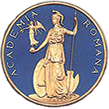

 P S I H O L O G I E
P S I H O L O G I E